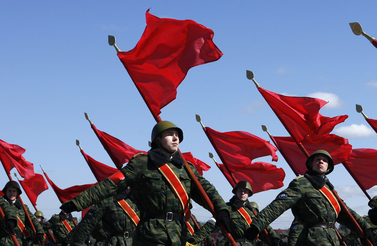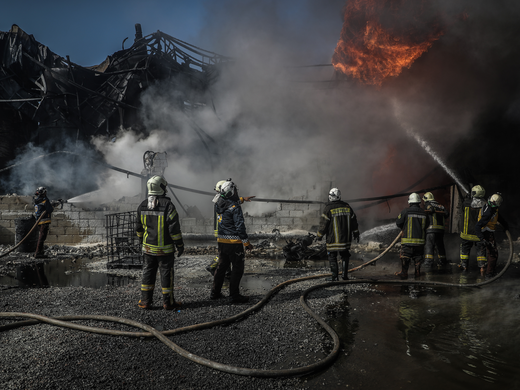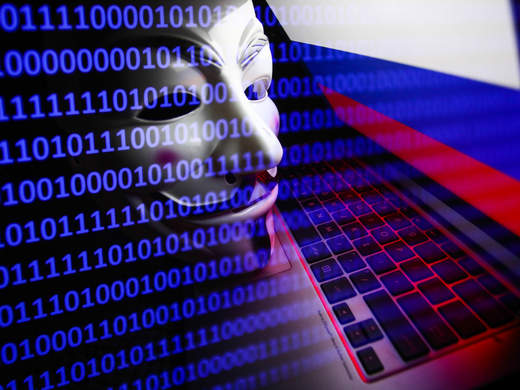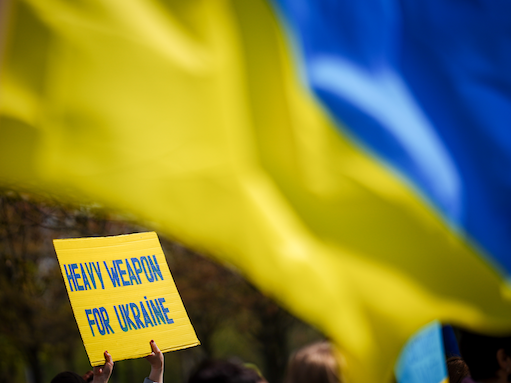Anyone attempting to predict the course of the Russian war against Ukraine over the last few months will have achieved a poor batting average overall. The focus of prediction has shifted with dizzying speed — from the question of whether Russia would invade at all, to estimates of just how quickly Russia would conquer Ukraine, and now to the dynamics and implications of a drawn-out conflict. The longer the war persists, the more important the accuracy of our next set of predictions becomes.
Before Russia invaded Ukraine on February 24, some Western intelligence services, notably those of the United States and the United Kingdom, had publicly predicted that a Russian attack would occur. Bringing secret intelligence into the open was intended to deter the Russian regime and obstruct efforts by Putin to engineer false-flag provocations to justify an invasion. Other spy services, such as French intelligence, downplayed the idea of a Russian assault. The chief of France’s military intelligence service, General Eric Vidaud, was cashiered for that miscall.
The Canadian intelligence outlook is a carefully guarded secret. Canada did not rush into providing Ukraine with lethal aid, perhaps a sign of predictive fence-sitting. Its first declared shipment of defensive weapons to Ukraine, consisting of a small number of anti-tank rifles, occurred only four days after the invasion.
Where most intelligence predictions (and those of almost all expert commentators) were wrong involved what came next. US intelligence suggested that Ukraine’s capital, Kyiv, would fall to a Russian assault within three or four days. Only the US State Department’s Bureau of Intelligence and Research dissented, noting Ukrainian public polls that demonstrated strong anti-Russian sentiment. In the event, the Russian advance on Kyiv ground to a halt; facing fierce Ukrainian defences in the Kyiv suburbs, the Russian military was forced to retreat, leaving massive evidence of war crimes in its wake. Following this misjudgment, the US intelligence system is now conducting a post-mortem to reconsider foreign military capabilities in light of its experiences with Ukraine and Afghanistan.
The Western coalition supporting Ukraine will have to get its next set of predictions right. The latest US intelligence estimate has Vladimir Putin preparing for a long war with objectives well beyond the seizure of Ukrainian territories in the Donbas region in eastern Ukraine. While US intelligence doubts that the Russian military will be able to achieve its wider ambitions in Ukraine, it understands Putin to believe that Western resolve will weaken, in the face of public costs in the form of inflation and higher energy prices, while his regime will be able to persist in trying to achieve its war aims.
British military intelligence recently issued an astounding assessment through its public Twitter feed that Russia “has now likely suffered losses of one third of the ground combat force it committed in February.” It asserts that Russia’s offensive against the Donbas has “lost momentum,” and is headed for stalemate, but does not advance predictions beyond the next 30 days of combat.
Crystal ball–gazing will have to peer further ahead than that. Four key questions drive future predictions about a long war in Ukraine.
The first question is whether the Russian military can recover from its losses and leadership failures to mount sustained military pressure in Ukraine. The second is whether the Ukrainian military, with Western aid, will be able to continue a very high tempo of military operations and inevitable combat losses in defending the country on multiple fronts. A third surrounds Putin’s vision of acceptable war aims — would he be content with seizing some Ukrainian territory in the east and south of the country and settling in for a long hybrid-war confrontation with Ukraine and its supporters? An overarching, and crucial, element is whether Putin is correct in his apparent belief that he can outlast what he sees as a decadent West, including an expanded North Atlantic Treaty Organization (NATO).
There is one potential confounder: the possibility of a successful Ukrainian counteroffensive over the summer months against a weakened Russian military, driving it out of the territories it has occupied since February and — perhaps — even restoring Ukrainian control over Crimea and the separatist breakaway regions, lost to Russian military incursions in 2014. Head of Ukrainian military intelligence Major-General Kyrylo Budanov has made just such an optimistic prediction, calling Russia’s vaunted military power a “myth,” and saying that it is just a “horde of people with weapons.”
All of these predictive pathways engage Canadian interests and demand well-prepared Canadian responses. Escalatory dangers hang over them all. Canada should follow the path of its close allies in preparing and making public Canadian assessments of the war’s future. Canadian diplomacy could use such assessments to reach out to uncommitted states in Africa and South Asia.
The one prediction that Canada must not allow to come true is the Putinesque belief in the prevailing strength of his authoritarian commitment to war at all costs in Ukraine, versus what he continues to see as an inherently weak Western, democratic resolve. Canada will have to demonstrate a willingness to stay the course in its support for all dimensions of Ukrainian state and societal survival, to hold Russia to account for its aggression and war crimes, and to press its allies in NATO, the European Union and the Group of Seven to do the same. The government will also need to communicate its policies and commitments clearly to Canadians, be transparent about the costs and sacrifices involved, be open about escalatory risks, and underline why any tendency to appeasement-oriented peace negotiations, as a way of exiting the war at Ukraine’s expense, would be contrary to the national and global interest.
Worry about a weakening Western resolve and a push to peace that might sideline Ukraine is not an idle fancy. Henry Kissinger’s recent remarks to the World Economic Forum in Davos, Switzerland, about a negotiated return to the “status quo ante,” granting Russia control over Crimea and the breakaway provinces in the eastern Donbas region, have generated strong pushback, especially from the Ukrainian government. The worthy desire to find some path to peace talks may be a very slippery slope.




